Photo by the Mackinaw Area Visitors Bureau
Whether it is spelled Mackinaw as in Mackinaw City or Mackinac as in Mackinac Island, they are pronounced the same way: Mack-i-naw. Why? It is because of the area’s rich history with the Native Americans, French, and British.
The area was named Michilimackinac by the Native Americans and when the French built a fort here in 1715, they recorded the name with a “c” on the end as a French word with an “aw” sound would be pronounced. Many guests to the area mispronounce Mackinac by saying “Mack-i-nack.” The “c” on the end of this word is instead pronounced as “aw.”
The word became shortened to Mackinac. The fort was moved on the winter ice to the island across the straits which became known as Mackinac Island.
Edgar Conkling was the founder of the city in 1857 and he changed the name to Mackinaw to reflect how the word actually sounds. Thus, in this part of Michigan, there is Mackinac Island, the Mackinac Bridge, the Straits of Mackinac, Mackinaw City, and the Icebreaker Mackinaw and they are all pronounced the same way: Mack-i-naw. There is no Nack in Mackinaw or “aw”! Pronounce it Mack-i-knack and you’ll give yourself away as a tourist who doesn’t know how to pronounce the place that you’re visiting…..
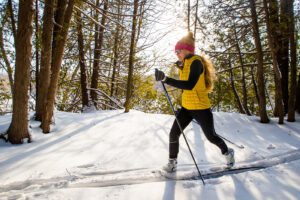
The many ski resorts in Northern Michigan have winter activities for the entire family including sledding, sleigh rides, tubing, and more.
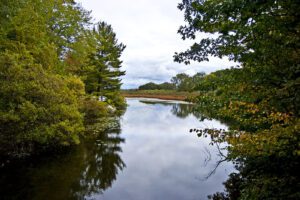
The history Northern Michigan’s Inland Water Route is preserved at the Inland Water Route Historical Museum in Alanson.
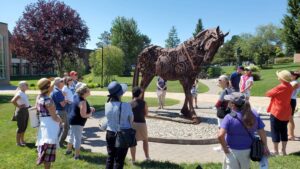
Harris Gardens at North Central Michigan College is a spectacular sculpture garden filled with 26 pieces of vibrant art.
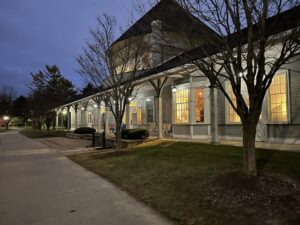
Within the historic Chicago/West Michigan railroad depot in Petoskey, the Little Traverse History Museum is a history filled gem.

Disc golf is hot everywhere and especially in Northern Michigan because of it’s many courses and beautiful scenery.
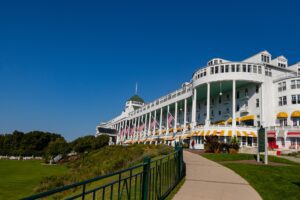
The majestic and historic Grand Hotel is one of the first sights visitors see as they head into the harbor on Mackinac Island.